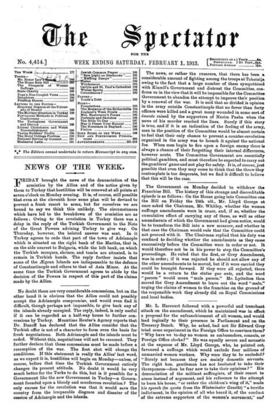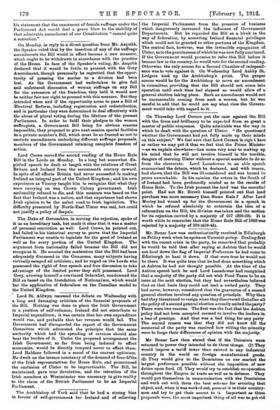Mr. L. Harcourt followed with a powerful and trenchant attack
on the amendment, which he maintained was in effect a proposal for the enfranchisement of all women, and would lead logically to their presence in Parliament and on the Treasury Bench. Why, he asked, bad not Sir Edward Grey tried some experiment in the Foreign Office to convince them? " Why have we to-day no women as ambassadors, consuls, or Foreign Office clerks P " He was equally severe and sarcastic at the expense of Mr. Lloyd George, who, he pointed out, favoured a suffrage which would exclude four millions of unmarried women workers. Why were they to be excluded ? " Surely not because they are mainly domestic servants. The right hon. gentleman has not hesitated to take their threepences—does he fear now to take their opinions ? " His denunciation of the militant suffragists, of their resort to arson instead of argument, and his reference to the attempt to burn his house, " or rather the children's wing of it," made his speech (to quote from the Westminster Gazette)" a terrific indictment, in the opinion of all who heard it, of the conduct of the extreme supporters of the women's movement," ane his statement that the enactment of female suffrage under the Parliament Act would deal a grave blow to the stability of that admirable amendment of our Constitution " caused quite a sensation."











































 Previous page
Previous page